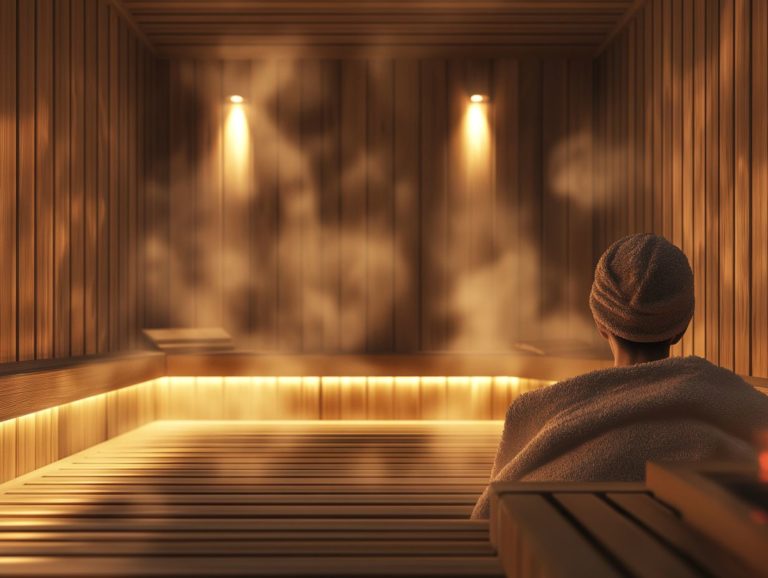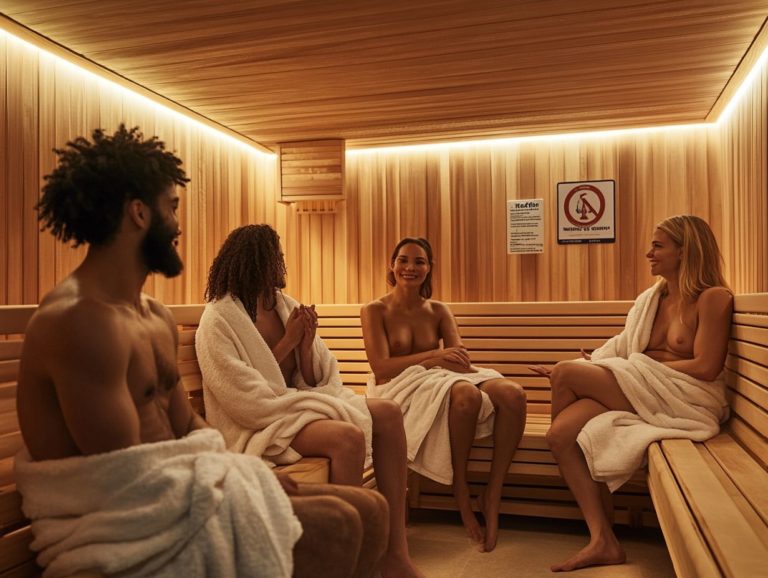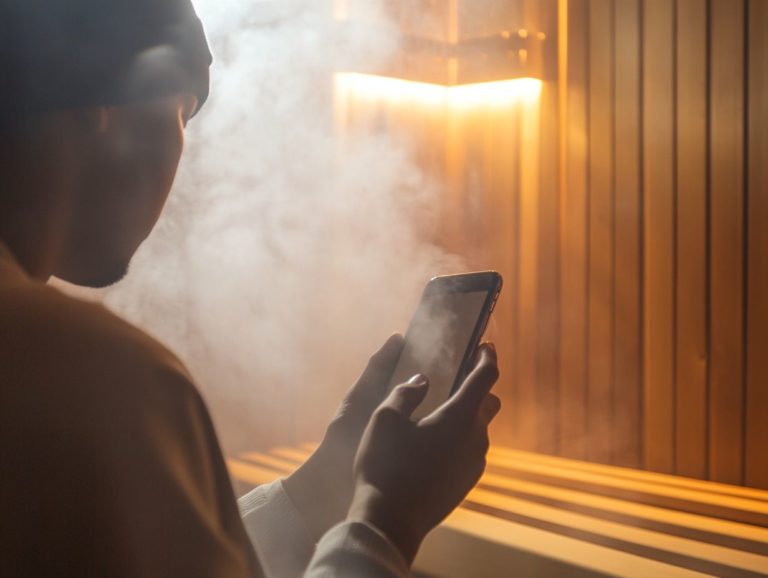The Science Behind Relaxation Techniques
In today s fast-paced world, discovering moments of calm may seem like an elusive luxury. However, relaxation techniques provide powerful tools to combat stress and elevate your well-being.
Are you ready to discover the power of relaxation techniques? This exploration delves into what these techniques entail, how they function, and the myriad physical and mental benefits they can offer. From mindfulness meditation to deep breathing exercises, you ll uncover a variety of methods that seamlessly fit into your daily routine.
Let s explore how relaxation can transform your life today and gain practical strategies for cultivating a more serene lifestyle.
Contents
Key Takeaways:
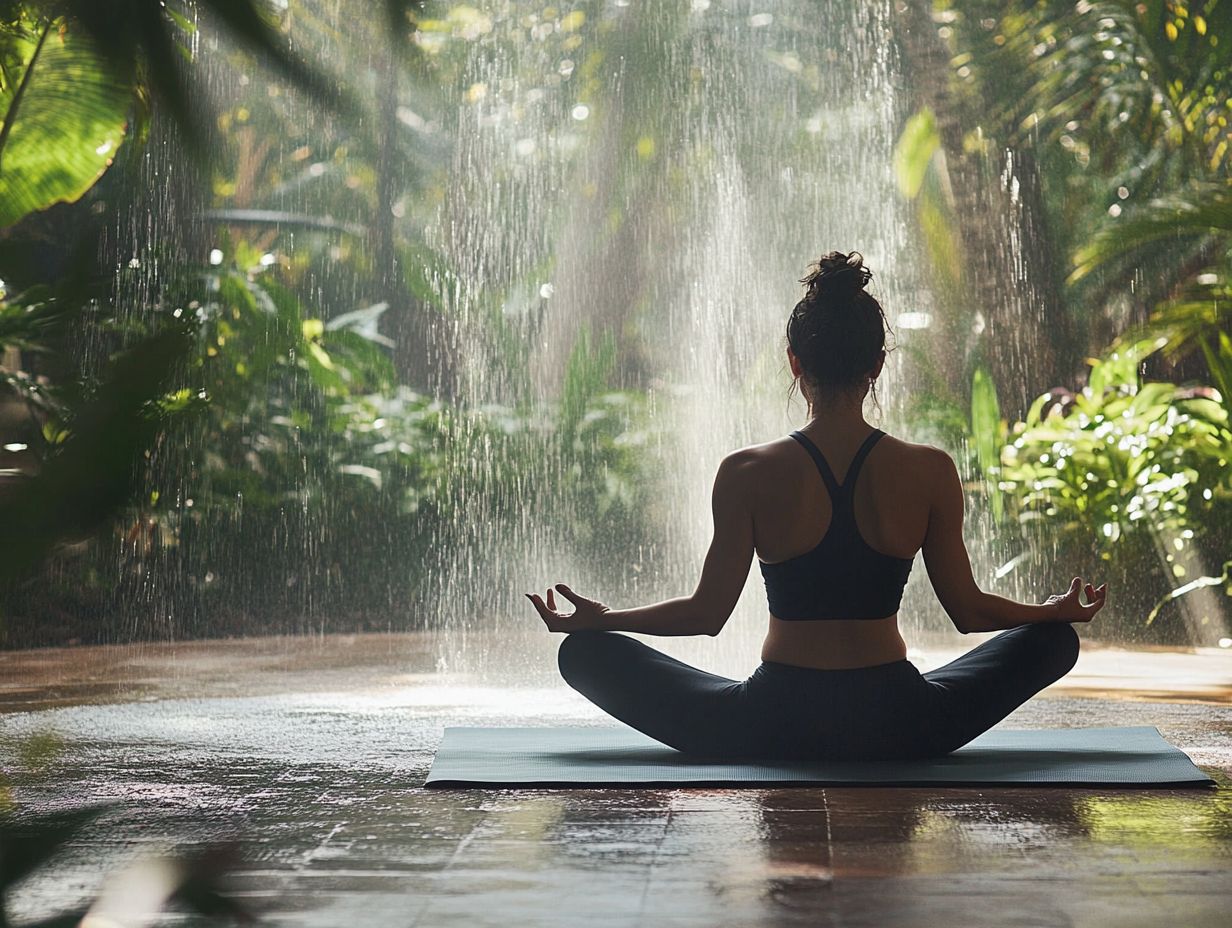
- Relaxation techniques are practices that help calm the mind and body, reducing stress and promoting a sense of well-being.
- These techniques work by activating the body’s natural relaxation response, releasing tension and promoting a state of calm.
- There are various types of relaxation techniques, including mindfulness meditation, progressive muscle relaxation, deep breathing exercises, visualization techniques, and autogenic training.
Understanding Relaxation Techniques
Understanding relaxation techniques is crucial for managing stress effectively and enhancing overall health. These techniques include a range of practices designed to decrease stress levels, promote relaxation, and alleviate symptoms linked to chronic stress.
By integrating these strategies into your routine, you can significantly improve your quality of life and lower stress. You ll navigate emotional challenges more gracefully and nurture a healthier mindset.
What are Relaxation Techniques?
Relaxation techniques are therapeutic practices designed to cultivate calmness and mitigate stress effects on your body and mind. They help relieve muscle tension and other physical sensations.
These methods include breathing exercises that focus on deep inhalation and slow exhalation to lower your heart rate. You might also explore visualization techniques, where you imagine serene settings to encourage tranquility. Additionally, mindfulness practices keep you grounded in the present, enhancing relaxation by allowing moment-to-moment awareness of your thoughts and feelings.
Incorporating these techniques into your daily life helps manage stress symptoms and promotes emotional well-being. Regular practice can lead to improved sleep patterns, reduced anxiety, and an overall sense of contentment.
How do They Work?
Relaxation techniques are key to inducing your body s reaction that counteracts the stress response, which can lead to chronic pain and health issues.
Methods like deep breathing, meditation, and progressive muscle relaxation trigger biochemical reactions that help lower your heart rate and blood pressure. As you practice, your body shifts from tension to calm, allowing muscles to release accumulated stress. Exploring the science of breathing and relaxation promotes a relaxation response that eases physical discomfort and enhances mental clarity.
By reducing stress effects, these techniques elevate your emotional well-being, fostering resilience and equipping you to maintain balance when facing challenges.
The Benefits of Relaxation Techniques
The advantages of relaxation techniques reach far beyond simple stress relief. They offer profound benefits to both your physical and mental health, including improvements in health conditions linked to stress, ultimately enhancing your overall quality of life.
Physical and Mental Benefits
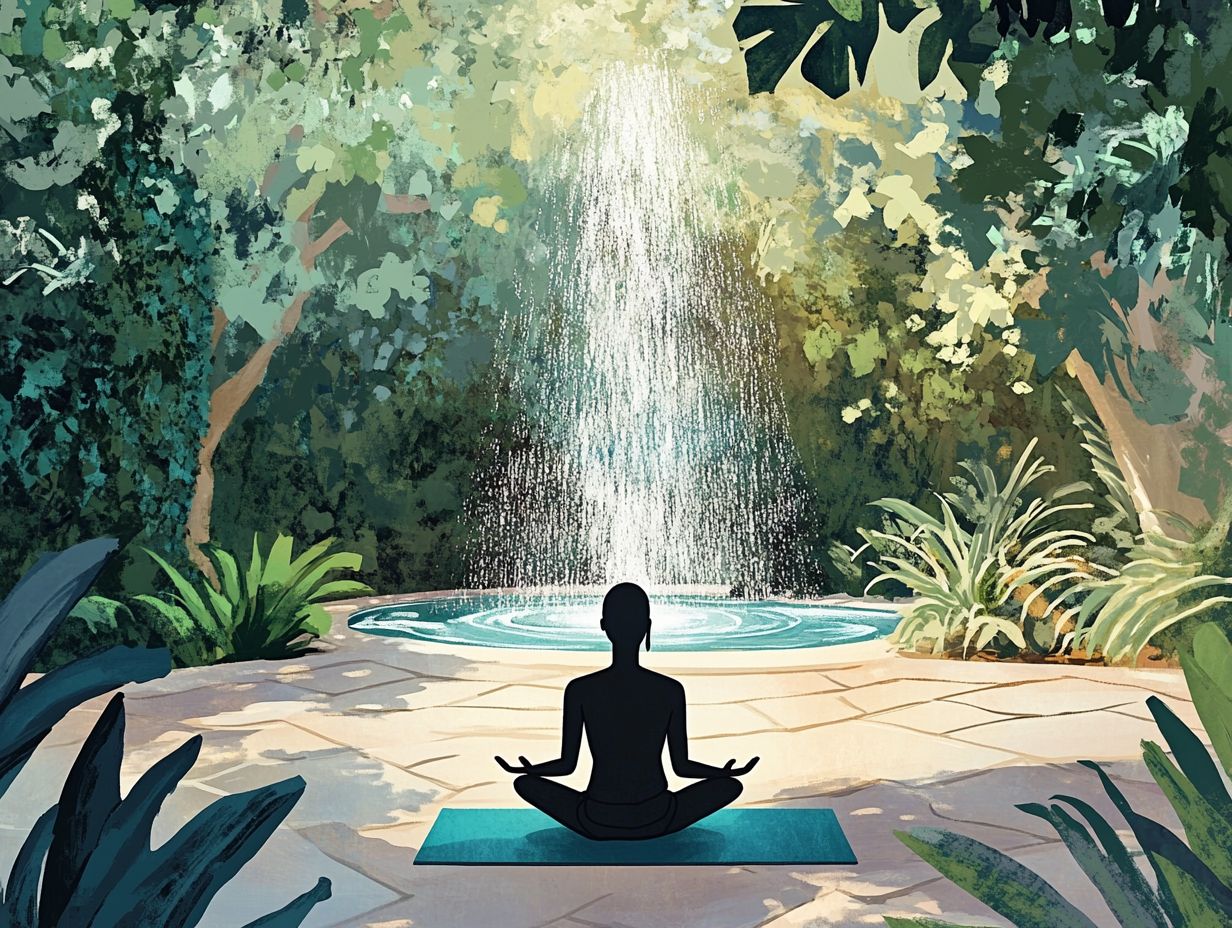
Relaxation techniques provide an array of physical and mental benefits, such as improved thinking skills. They’re amazing tools for managing chronic stress and enhancing your overall well-being.
By incorporating practices like deep breathing and mindfulness meditation into your routine, you can dramatically lower your heart rate and blood pressure essential factors for maintaining cardiovascular health.
These techniques sharpen your thinking skills, improving focus and memory retention. They also foster emotional stability by alleviating anxiety and depression.
Your sleep quality can also improve dramatically as these relaxation methods help calm your mind and prepare your body for restorative rest. This reduces stress symptoms and paves the way for a more balanced, healthier lifestyle.
Types of Relaxation Techniques
You ll discover a wealth of relaxation techniques, including mindfulness practices and regular exercise. Each is thoughtfully designed to address your unique stressors and elevate your overall well-being.
Mindfulness Meditation
Mindfulness meditation is a transformative practice that enhances your focus and awareness while promoting relaxation and effectively managing stress through various meditation techniques.
By nurturing a non-judgmental awareness of the present moment, you create a mental sanctuary to observe your thoughts and feelings without feeling overwhelmed.
This practice alleviates stress and sharpens your thinking skills, enhancing attention and memory.
Simple techniques like deep breathing, body scans, or mindful walking can be woven into your daily routine. This allows you to turn ordinary moments into opportunities for mindfulness.
As you engage more deeply with your experiences, you’ll likely notice improvements in emotional resilience and clarity, leading to a more balanced and fulfilling life.
Progressive Muscle Relaxation
You can use progressive muscle relaxation to systematically tense and relax different muscle groups. This technique helps alleviate muscle tension and mitigate the stress response.
By focusing on individual muscles, you ll cultivate heightened awareness of bodily sensations, enabling you to distinguish between tension and relaxation.
This practice alleviates physical discomfort and nurtures emotional well-being, making it an effective tool for tackling anxiety and stress.
Engaging in this technique may significantly reduce symptoms like fatigue and irritability, paving the way for enhanced mental clarity.
Progressive muscle relaxation stands out as a powerful method for improving sleep quality, allowing you to confront challenges with a more composed mindset.
Deep Breathing Exercises
Deep breathing exercises are highly effective relaxation techniques that help you lower stress levels, alleviate anxiety, and invite a calming response into your life.
These practices do more than promote tranquility; they initiate physiological changes that can significantly enhance your overall well-being.
By incorporating techniques like diaphragmatic breathing (which means breathing deeply using your diaphragm), box breathing, or the 4-7-8 method, you can noticeably reduce your heart rate and lower blood pressure.
Integrating these exercises into your daily routine whether during a lunch break or right before bed provides you with a powerful tool for managing stress and building emotional resilience.
As you become more attuned to your breath, the benefits go beyond fleeting relief, nurturing a deeper connection to your mental and emotional landscape.
Start incorporating these techniques today for a happier, healthier you!
Visualization Techniques
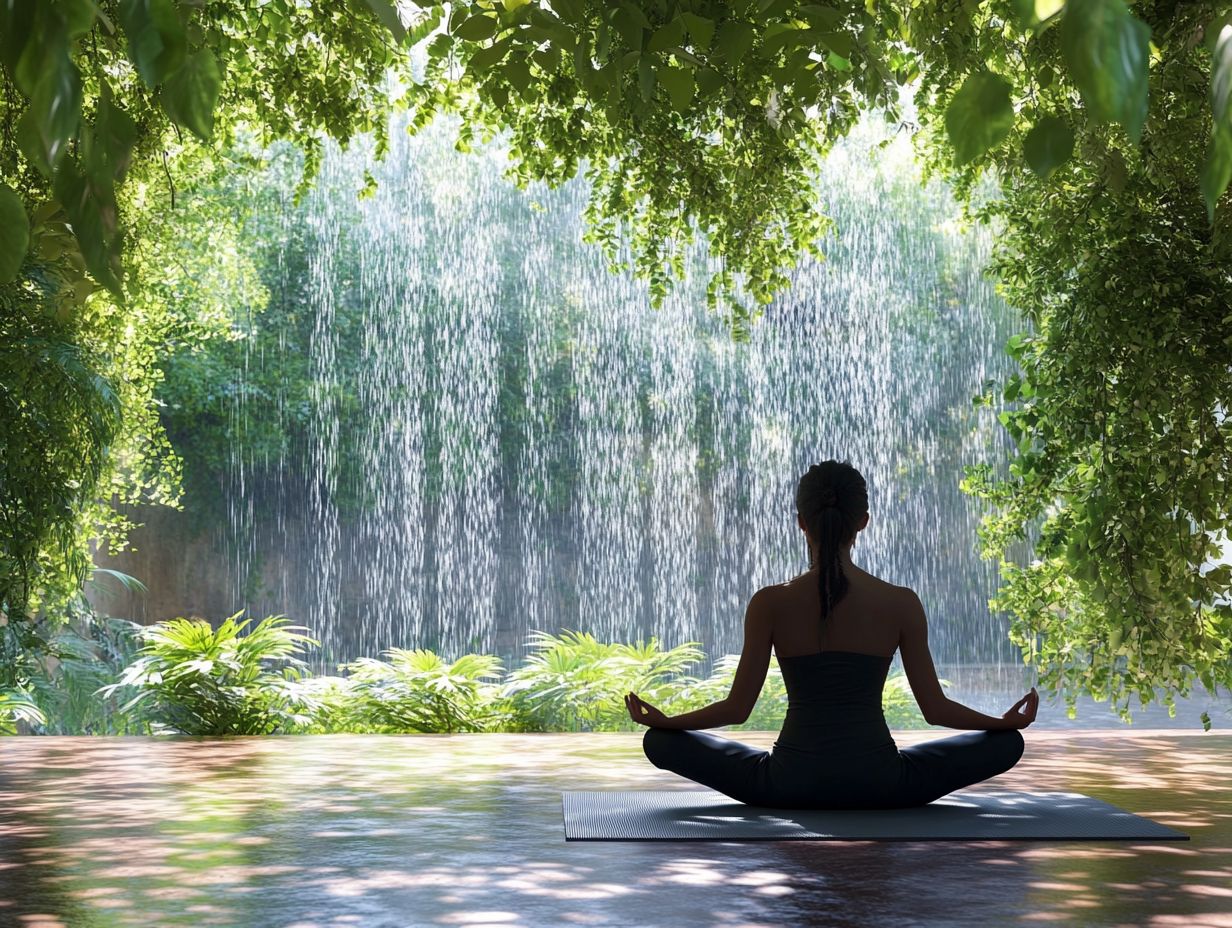
Visualization techniques, including guided imagery and biofeedback (using technology to learn how to control body functions), invite you to create mental images that promote relaxation and ease emotional discomfort.
By leveraging your mind, you can create vivid images. These images transport you to peaceful settings, like serene beaches or tranquil forests. This mental journey not only helps reduce stress but also enhances your cognitive function by fostering greater focus and clarity.
Consider how athletes often rely on visualization to mentally rehearse their performances. In fact, incorporating these techniques can significantly enhance your emotional well-being, reducing anxiety and improving your mood.
Start embracing these practices today to unlock a more centered and balanced life.
How to Incorporate Relaxation Techniques into Your Daily Life
Incorporating relaxation techniques into your daily routine is essential for mastering stress management and elevating your overall well-being. Prioritizing these practices allows you to cultivate a sense of calm and balance that can profoundly impact your life.
Tips and Strategies for Practicing Regularly
To embrace relaxation techniques, it’s crucial to establish a consistent routine and incorporate activities that support your journey.
Setting aside dedicated time each day for these practices can dramatically enhance their benefits. This allows your mind and body to look forward to those serene moments.
Pairing this routine with a nourishing diet rich in fruits, vegetables, and whole grains will elevate your overall well-being, making those relaxation techniques even more impactful.
Integrating regular exercise into your daily schedule not only boosts your physical health but also releases delightful endorphins that help melt away stress, paving the way for a deeper relaxation experience.
By prioritizing these lifestyle changes, you can cultivate a holistic approach to mental and emotional wellness that amplifies the effectiveness of your relaxation efforts.
Frequently Asked Questions
What are some common relaxation techniques?
Common techniques include deep breathing, meditation, yoga, progressive muscle relaxation, and visualization techniques.
How do relaxation techniques work?
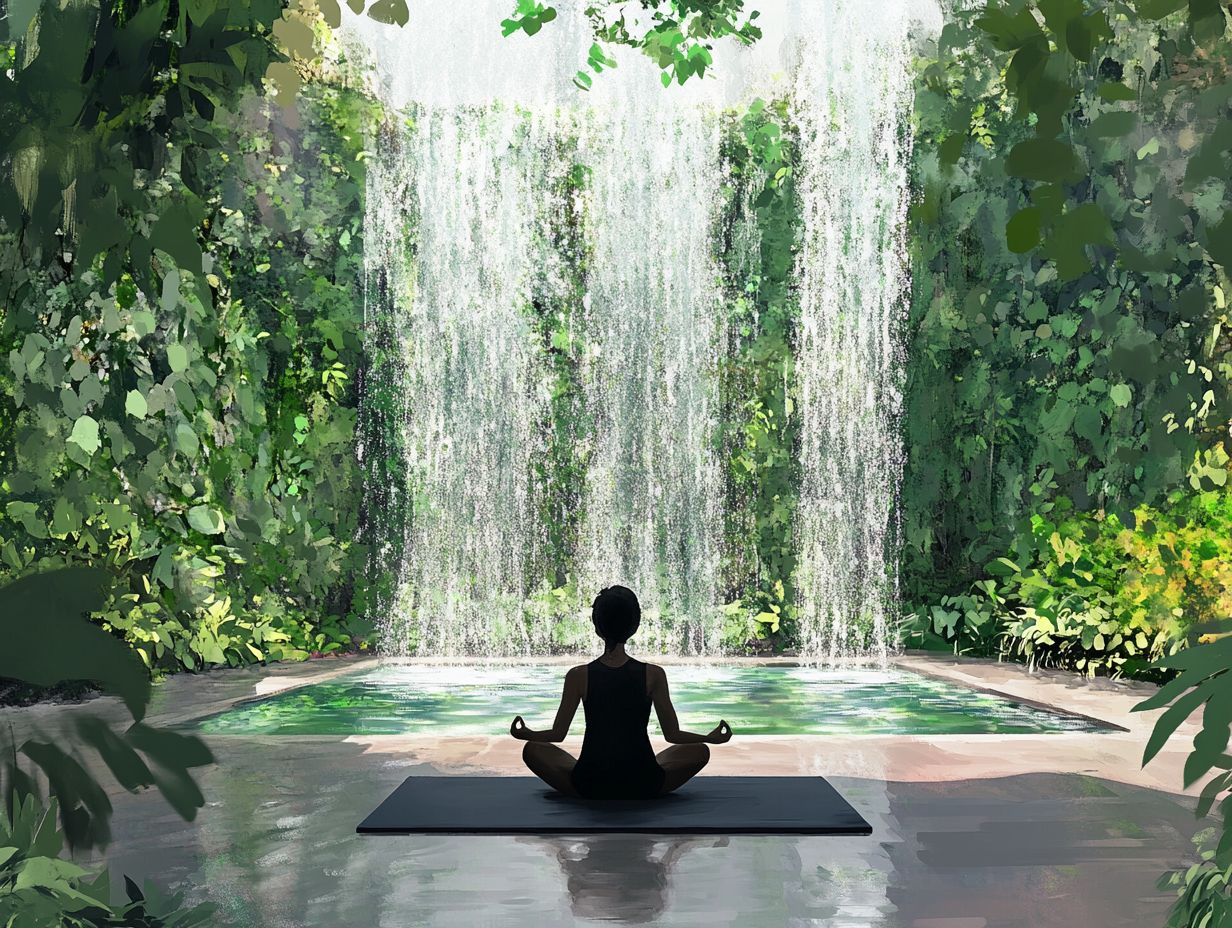
Relaxation techniques work by activating the body’s relaxation response, which reduces the activity of stress hormones, helps lower blood pressure, slows the heart rate, and reduces muscle tension.
What is the science behind deep breathing?
Deep breathing triggers the parasympathetic nervous system, helping to calm the body and mind. It also increases the oxygen levels in the body, aiding in reducing physical tension, promoting relaxation, and enhancing cognitive function.
Can relaxation techniques improve mental health?
Yes, research shows that regular practice of relaxation techniques can improve mental health, enhance psychological well-being, and reduce symptoms of anxiety, depression, and chronic stress.
How does practicing relaxation techniques benefit the body?
Practicing relaxation techniques can benefit the body in various ways, such as lowering blood pressure, reducing muscle tension, improving immune system function, and promoting better sleep, all contributing to overall well-being.
Are there any potential risks associated with relaxation techniques?
Generally, relaxation techniques are safe for most people. However, individuals with certain health conditions, chronic pain, or pregnant women should consult with a healthcare provider before starting new relaxation practices or coping methods.
Take charge of your well-being! Start your relaxation journey today and experience the benefits firsthand.



